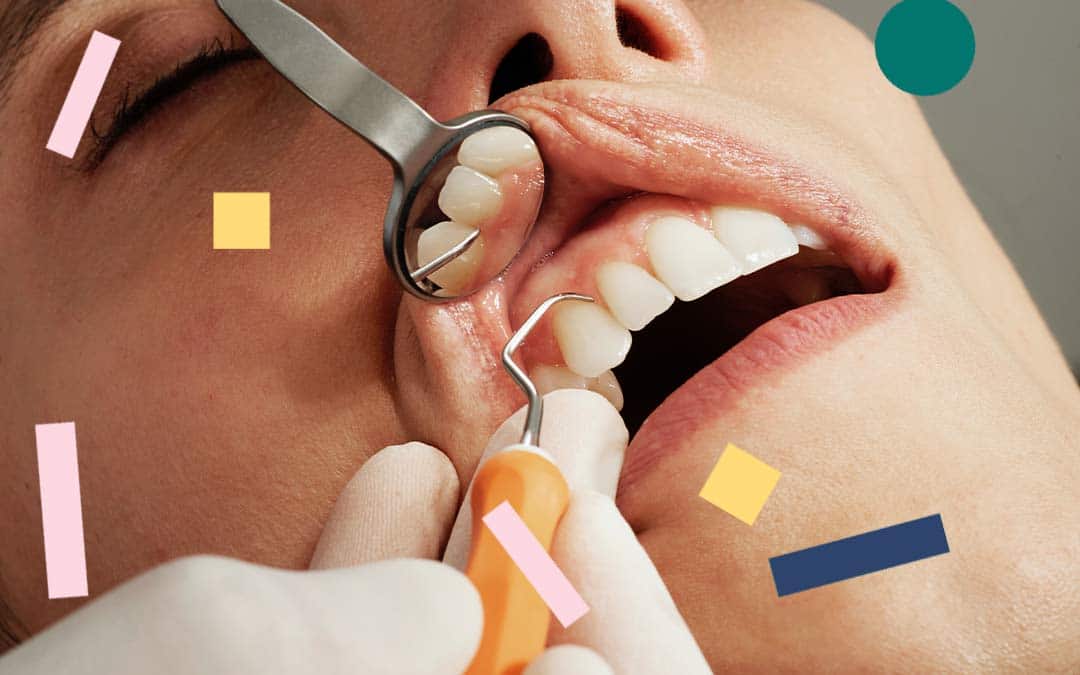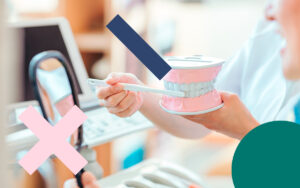Author: Lillian Donoghue, Oranmore Dental Care, Galway, Ireland.
Tooth sensitivity is one of the most common issues that present to me, as a dental hygienist. Sensitivity has been described in many different ways like shooting, stabbing or a sharp pain that is temporary. Tooth sensitivity is most noticeable when eating or drinking hot, cold or acidic foods or drinks, when brushing or even when the temperature dips.
Sensitivity usually occurs when the enamel, the outer layer of the tooth, has been damaged. This can be caused by a number of factors but the one I see most and am most familiar with is gum recession. Gum recession can cause major sensitivity for patients and can be quiet unpleasant. There are a few causes of gum recession i.e. aggressive brushing over a long period, poor oral hygiene, genetics, trauma, Bruxism and tooth miss alignment.
- Aggressive brushing
Aggressive brushing will not cause gum recession over night, it is a habit of a life time and sometimes can take a while to even notice you are doing it.
Prevention
To prevent over brushing I would firstly recommend learning the correct brushing technique for your preferred brush type i.e. manual or electric. Next step is changing your toothbrush. If you are a manual user, you need to change to an extra soft/ soft bristled toothbrush with a small head. If you prefer electric toothbrushes I would favour soft/ sensitive head type, a built in pressure sensor is essential and a timer is vital. Usually the timer runs for two minutes, vibrating every thirty seconds to alert you to move on to the next quadrant. If yours doesn’t have a timer or you’re a manual brusher an egg timer, using your phone or listening to your favourite song will aid you in reaching your two minute goal. Personally, I would recommend an electric toothbrush. I bought my first one last year and I have not looked back. Electric toothbrushes can be a mind field so remember it doesn’t have to be the most expensive one to be the most effective. Look out for one with a pressure sensor, timer and charger. It’s also important to note you may need to purchase an adapter.
- Poor Oral hygiene
Poor oral hygiene is a contributing factor to gum recession, gum disease and also tooth decay. If we are not brushing twice daily and cleaning in between our teeth once daily, plaque can accumulate on our teeth. When plaque is left undisturbed it hardens/ calcifies and is referred to as calculus/ tarter. This build up gets very comfortable on the teeth and makes it way down the gum line and begins to damage the gum resulting in gum disease. Gum disease is reversible. If the destruction continues and the calculus damages more tooth structure, this results in periodontal disease, which is not reversible.
Prevention
It is pertinent to attend your dentist annually and your dental hygienist at least biannually. Doing this in conjunction with good home care will prevent tarter build up damaging the tooth structure, namely preventing gum recession and sensitivity. Your home care should involve brushing twice daily with the correct brushing technique for two minutes, using a pea sized amount of fluoride toothpaste- spit out after brushing, do not rinse. I would recommend a specific toothpaste that is designed to aid with sensitivity. Two of my favourites are seni kin toothpaste and sensodyne toothpaste. Spitting after brushing and not rinsing is essential as you are then giving the toothpaste a chance to work. Additionally, it is beneficial to rub a small amount of the toothpaste onto the sensitive area for one minute after brushing, spitting out the excess, not swallowing. Furthermore there is an excellent product available in pharmacies called sensi kin gel. It has 10% potassium nitrate and provides fast effective relief from sensitivity. It is recommended to only use for one week at a time but is a great product to have.
Your dentist or dental hygienist can also apply a fluoride varnish to the area of recession that is causing sensitivity. This works very well and can be done at each visit is needed. We also have topical anaesthetics and local anaesthetics that can be administered for a cleaning to curb the sensitivity and make you more comfortable. Don’t be afraid to ask.
Acidic and sugary food and drinks damage the enamel and in turn cause sensitivity. Limiting these along with the other recommendations will contribute to tackling your sensitivity.
Using interdental aids will clean approximately 40% of the tooth surface that our toothbrushes can not physically reach i.e. floss and interdental brushes/ sticks. Floss comes in two forms, on a string or on a handle. It is personnel preference as to which you choose but the correct technique is key. “Tepe” interdental brushes come in a range of sizes which are colour co ordinated and have proven to be exceedingly beneficial and well liked by patients. Alternatively another product on the market called “tepe easypick” are widely available to assist with interdental cleaning. They are silicone and available in two different sizes.
I prefer to do my interdental cleaning at night time after I am finished eating and am am watching TV. If I wait until just before bed time, I can be too tired. Finding a time that fits into your schedule is best.
- Genetics
Our genetics can be responsible for gum disease and periodontal disease which in turn results in gum recession and sensitivity. We can not do much about our genetics but following these tips will reduce the risk of causing recession and sensitivity to ourselves.
- Trauma
Have you ever chewed on the lid of a biro and poked or stabbed your gum? That would be a prime example of how gum recession could occur due to trauma. Wearing a tongue piercing long term can also cause trauma to the gum resulting in recession and sensitivity.
- Bruxism
Bruxism or tooth grinding can wear away the enamel over time and cause sensitivity. Sometimes we can be grinding out our teeth sub consciously and are made aware of the behaviour by a loved one or some jaw discomfort. If this is affecting you, speak with your dentist for treatment options.
- Tooth misalignment
Tooth misalignment can also be responsible for gum recession and sensitivity. Too much force placed on the misaligned tooth can cause the gum to recede, resulting in sensitivity. Your dentist can offer assistance on treatment options available to suit your needs.
I hope my advice will enable you to treat your sensitivity and if it does not sub side there may be another cause for your sensitivity like a fracture in the tooth or tooth decay. Making an appointment with your dentist would be best advisable.








